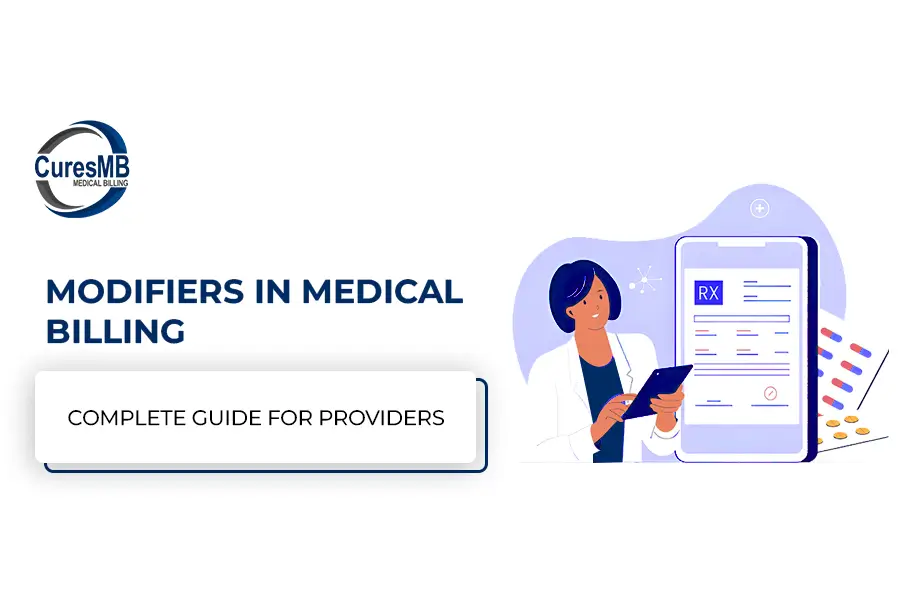
Accurate coding is the backbone of medical billing, but sometimes a CPT or HCPCS code alone doesn’t tell the full story. That’s where modifiers in medical billing come in. Modifiers are two-digit numeric or alphanumeric codes providing additional details about the service or procedure.
They help explain how, where, and why a service was provided, ensuring proper claim processing and reimbursement.
A modifier is added to a CPT, HCPCS, or E/M code to clarify circumstances that may otherwise affect payment. For example, if two procedures are performed on the same day or if a service is altered due to unusual circumstances, modifiers communicate these details to payers.
Our goal is to streamline your healthcare revenue cycle management, give you the financial freedom your practice deserves, and take control with a partner specializing in provider RCM optimization and services excellence.
Fill out the form below and we’ll contact you shortly.
Getting modifiers wrong doesn’t just slow things down; it can cost real money. Using the wrong one may lead to:
But when you use them right? You get:
Incorrect use, however, can lead to audits, compliance risks, or revenue loss.
Modifiers in medical billing are small but powerful tools that can make or break claim success. They add necessary context to medical services, ensure compliance, and protect revenue. With payer rules evolving in 2025, healthcare providers and billing teams must stay updated on modifier guidelines to avoid costly denials.
Cures Medical Billing Services helps providers master modifiers and streamline revenue cycle management. Contact us today for expert billing support!.
Modifier 25 indicates a significant, separately identifiable E/M service performed on the same day as another procedure.
Modifier 59 identifies distinct procedures that are not typically billed together but are justified under certain conditions.
Incorrect modifier use can result in claim denials, reduced payments, compliance audits, or even penalties.
Modifier 59 is used to show that two procedures were independent and not normally bundled together.
Both identify distinct services, but Medicare prefers XU because it gives more detail.
They are attached directly to CPT/HCPCS codes on a CMS-1500 form or an electronic claim submission.
Overusing Modifier 59, forgetting Modifier 25, or applying modifiers without proper documentation.
Yes. Misuse of modifiers, especially 25 and 59, often triggers payer audits.
Not always, some modifiers are payer-specific. Medicare and commercial insurers may have different rules.
Discover Cures Medical Billing Services Across Different States
FL
NY
ML
CO
NJ
AZ
TX
CA
WA
We are a team of national medical billing service experts based in Astoria, NY, committed to providing ongoing value to our customers. We leverage technology and implement best practices to provide high-quality and cost-efficient medical billing solutions from domestic locations, enabling customers to achieve their business goals. Cures Medical Billing is the best option for any medical billing needs.
Medical billing around Astoria, NY, and beyond is our core competency and our specialists will efficiently manage all your billing needs. Our medical billing specialists have over 12 Plus years of experience with all security technologies to ensure data integrity for our customers. Using our medical billing service, anyone can make their medical billing task less resource-consuming.
Efficiency & precision in healthcare financial management with Cures Medical Billing, your trusted partner for smarter, faster, and more accurate billing solutions.
This site uses cookies. Read our Privacy Policy